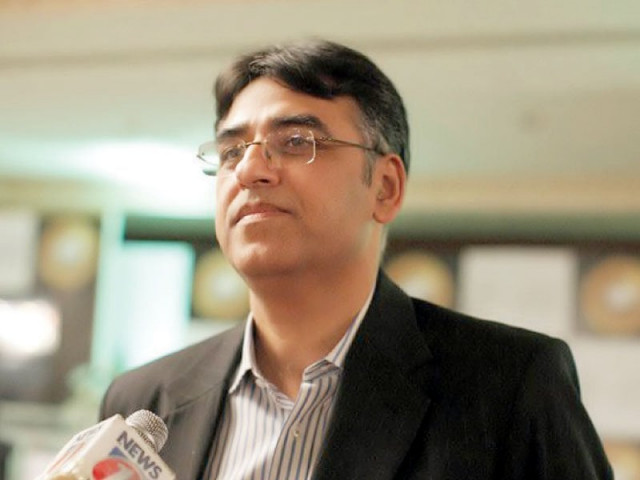Wanted: a new breed of economists
Pakistan needs to raise a new breed of economists, public policy practitioners to resolve economic, social challenges

PTI leader Asad Umer. PHOTO: FILE
Firstly, Pakistan lacks a focus on domestically-sponsored research agenda. Most of the economic research in Pakistan is financed by international organisations. There is a need to establish an autonomously-run Pakistan Economic Research Centre (PERC) to finance research on domestic economic policies. This PERC should not recruit in-house staff for research rather it should only finance research.
Secondly, most of economic research in Pakistan is still narrowly focused on macroeconomic outcomes such as fiscal and current account deficits without realising that these outcomes are based on microeconomic fundamentals such as state-market relations, value chain, state capacity, labour force productivity, vibrancy of cities, and entrepreneurial culture. Universities and think-tanks should focus on microeconomic foundations.
Thirdly, Pakistan has been relying on economists either coming from international agencies or professors of Ivy League institutions. Both belong to the super elite class of Pakistan that is disconnected with the society and the functioning of the public sector in the country. Of course, there is no harm in benefiting from these experts having international exposure, but they should not be given policy formulation positions on their sabbaticals or vacation. One way to get out of this trap is that the Higher Education Commission of Pakistan embark on the transformation of economics as a discipline in Pakistan. Three things are needed in this regard: one, fundamental revision in the Economics syllabus across the country to include many emerging fields and subjects. Two, all economics graduates should be required to have compulsory internships in schools, hospitals, agriculture farms, factories, technology firms and state-owned organisations. Three, economics students should be exposed to interdisciplinary education.
Fourthly, all economic ministries should have 5% of their current budget allocated for research and policy support that should be used for financing research in their domain. The public sector should make research financing less bureaucratic to attract quality researchers. Once this process of continuous interaction of domestic researchers and policy makers starts, economists will also learn in this process and that will feed into the quality of research in the long run.
Fifthly, political parties need to have in-house economic think tanks. Instead of engaging retirees or young volunteers, political parties should hire economists in their think-tanks to develop a long-term understanding of political and economic issues and their implications. It will help in three ways: One, economists working closely within political parties will have more nuanced understanding of political and social costs and implications of economic decisions. Two, these economists will apprise the political leadership of more realistic situation of the economy and available alternatives. Three, this fusion of economic and politics will help the political parties in avoiding tall claims and not get blindsided by the economic situation of the country when in power.
The aforementioned measures can help broaden the pool of economists and policymakers for leadership roles in the public sector of the country.
Published in The Express Tribune, June 1st, 2019.
Like Opinion & Editorial on Facebook, follow @ETOpEd on Twitter to receive all updates on all our daily pieces.














COMMENTS
Comments are moderated and generally will be posted if they are on-topic and not abusive.
For more information, please see our Comments FAQ